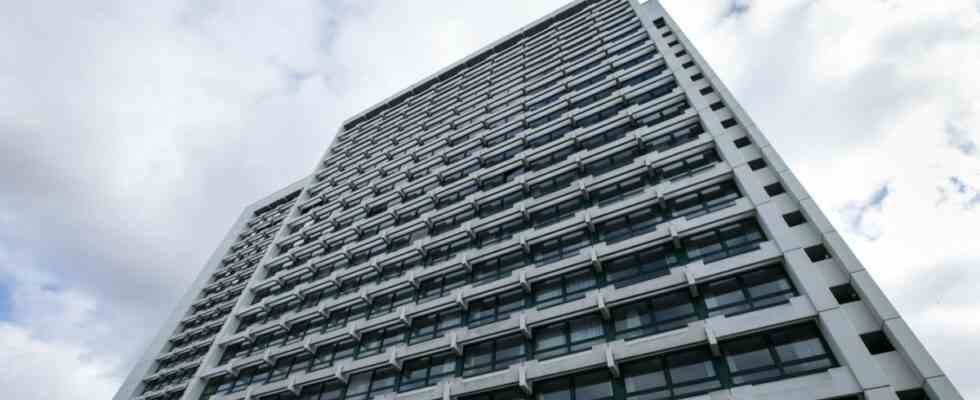It will be a while before students looking for accommodation will benefit from this, but at least the years of standstill are over: On Tuesday, the Bavarian cabinet agreed on a completely new approach to the renovation of two large dormitories in the student town of Freimann (Stusta). The project will be taken out of the hands of the owner, the student union, and instead Bayernheim GmbH will take over and renovate houses 9 and 12 with a total of 1056 apartments. The Free State bears the costs: 32.4 million euros come from the Ministry of Science, 40 million from existing funds from the Ministry of Construction.
While students are despairing of Munich’s rental prices, around 1,500 apartments are currently empty in Germany’s largest student housing complex, more than 1,200 of them long-term. A place to live there costs an average of just under 300 euros including heating. Due to the vacancies, the student union in Munich and the surrounding area currently has just under 10,000 apartments available, normally it would be 11,000. There are around 13,000 people on the waiting list.
The buildings in the student town are dilapidated and there is a lack of fire protection. The fact that there are massive problems became apparent when a fire broke out in the basement of house 13, the red house, in February 2021, one resident died from smoke inhalation and several people were injured. The building with 180 places has been uninhabited since then, as a result the student union also had two other, significantly larger dormitories closed due to unresolved fire protection issues: House 9 with 616 places, the Hanns-Seidel-Haus, was vacated in September 2021. House 12 with 440 places, the orange house, has been empty since March.
Over the summer there was a controversy between the student union, which is dependent on grants for its renovation and construction projects, and its legal supervisor, the Ministry of Science, about how to proceed, who will do what when and with what money. The student union explained that it lacked the necessary equity capital, and those responsible demanded an immediate special subsidy of 24.5 million euros in order to start planning for houses 9 and 12 as quickly as possible. Science Minister Markus Blume (CSU) dismissed this as “completely utopian” and instead suggested that the student union should sell land or increase its rents.
On Tuesday, neither Blume nor Minister for Construction and Transport Christian Bernreiter (CSU) could resist the tips of the student union when they presented the state government’s alternative solution for the student city: the refurbishment backlog was not caused by a lack of state support, so the tenor. “That was and is due to a lack of reserves,” said Blume. And Bernreiter explained: “Funds were neither applied for nor called for.”
The student union no longer plays a role in the state government’s current restructuring plans. It is now being examined whether the state housing association Bayernheim will take over and renovate the two dormitories. Bayernheim was founded in 2018 with the aim of creating 10,000 affordable apartments in Bavaria by 2025. Since then there have been purchases, but nothing has been completed so far.
The science policy spokesman for the FDP parliamentary group in the state parliament, Wolfgang Heubisch, described it as a “joke” that Bayernheim should be responsible for such a large-scale project. Blume’s solution is “half-baked”. The Studentenwerk, which was informed about the cabinet’s decision on Tuesday, reacts cautiously: “Since the main concern of the Munich Student Union is always to provide students in Munich with as much affordable housing as possible, we welcome any solution that meets the need for affordable living space as quickly as possible.”
The renovation in the student town is being financed with 32.4 million euros from the Ministry of Science, which is almost 25 percent more than the special subsidy that the student union had requested. In addition, there are around 40 million euros from the student housing subsidy of the Ministry of Construction.
On Tuesday, the ministers left open when the 1,000 apartments in the Stusta will be habitable again. You will approach the matter “not at a snail’s pace”, but “briskly”, said Bernreiter. However, it is a “dismantling down to the shell” including a new structure, and that will not be ready in a hurry next year. The student union had assumed that house 12 would be occupied again in 2026, for house 9 it had not made a forecast, but only wanted to secure the financing. A small ray of hope for today’s students: House 11 with 246 places, the blue house, which has been renovated since 2019, should be ready around the turn of the year.

